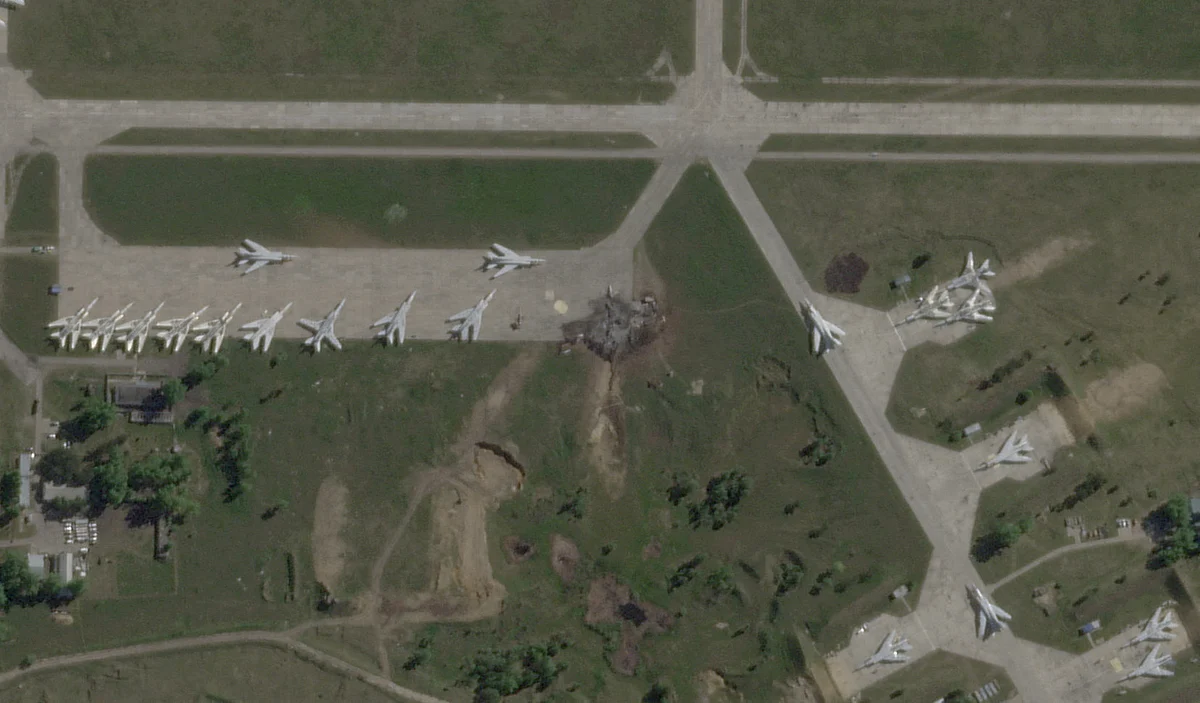Ukraine's Operation Spiderweb Could Trigger New Era Of Hybrid Warfare, Experts Say
Ukraine's recent drone campaign deep into Russian territory, known as Operation Spiderweb, is seen by analysts as a tactical development that could reshape the nature of modern warfare and trigger broader geopolitical consequences.
The June 2 operation targeted strategic Russian military aircraft at the Morozovsk air base and other sites using domestically produced drones enhanced with artificial intelligence. It reportedly damaged long-range bombers and surveillance assets inside Russia.
International experts said the operation could prompt a shift in Western military policy.“One major consequence will likely be that the Europeans and Americans agree to lift range restrictions on Ukrainian strikes against Russian targets,” said Samuel Ramani, Associate Fellow at the Royal United Services Institute (RUSI) and CEO of Pangea Geopolitical Risk.
Stay up to date with the latest news. Follow KT on WhatsApp Channels.
“It's going to help Ukraine strike not just strategic bombers, but also ammunition depots, artillery shell storage sites, and Russian personnel before they manage to launch attacks.”
He also noted that the use of AI-powered drones in the operation could influence how other nations prepare for future conflicts.“This is something that the Taiwanese are also hoping to develop potentially in the event of a broader conflict against China,” Ramani said.“So it's something that will be inspirational for many, many other countries.”
Ramani added that Ukraine's actions are already influencing political responses in the West, particularly calls for tougher measures against Moscow.“The Ukrainians are really calling now for the imposition of that new legislation,” he said.
“This is an extraordinary achievement from the Ukrainian side,” Ramani said on the attack.“It took 18 months to prepare, and Operation Spiderweb also reflected several technical innovations. decapitated critical parts of the Russian military infrastructure.”
However, he noted that this shift does not necessarily change the overall trajectory of the conflict.“The Russians are still the ascending party when it comes to the offensive operations in Ukraine,” he said.“These attacks are not going to change that... but it is a major morale boost for the Ukrainians.”
In response to the drone strikes, Russian President Vladimir Putin vowed retaliation. On June 7, Russia launched what Kharkiv's mayor called the“most powerful attack” on the city since the beginning of the war. At least 40 explosions were reported, one person was killed in a strike on a residential building in the Kyivsky district, and 18 others, including four children, were wounded.
How such operations could influence regional stabilityBeyond the immediate military implications, the drone campaign has raised concerns among global security analysts about how such operations could influence regional stability and reshape civilian risk assessments.
“We are monitoring for potential regional impacts, including a possible expansion of cyberattacks and disinformation campaigns across European states,” said Louise Hogan, Lead Security Analyst for Eastern Europe and Central Asia at International SOS.“This escalation highlights how commercial and civilian infrastructure can be unwittingly repurposed by state actors.”
International SOS, a leading health and security risk consultancy, has advised organisations to revise their risk management strategies.“We advise conducting a full audit and assessment... considering their supply chains, communications, transport routes,” Hogan said.“They should develop and test a robust contingency plan that has clear protocols with assigned roles and responsibilities.”
The technical nature of the drone assault has also prompted concerns about how other nations, or even non-state actors, might replicate such operations in future conflict zones.
As the war continues, analysts suggest the drone operation may not be an isolated event, but rather a preview of how future conflicts could be waged using autonomous systems, AI, and precision strikes beyond traditional frontlines.
Tens of thousands of people have been killed, swaths of eastern and southern Ukraine destroyed, and millions forced to flee their homes since Russia invaded in February 2022.

Legal Disclaimer:
MENAFN provides the
information “as is” without warranty of any kind. We do not accept
any responsibility or liability for the accuracy, content, images,
videos, licenses, completeness, legality, or reliability of the information
contained in this article. If you have any complaints or copyright
issues related to this article, kindly contact the provider above.
Most popular stories
Market Research

- 1Inch Unlocks Access To Tokenized Rwas Via Swap API
- Financewire And Tipranks Partner To Redefine Financial News Distribution
- Ethereum-Based Defi Crypto Mutuum Finance (MUTM) Raises Over $16 Million With More Than 720M Tokens Sold
- Kintsu Launches Shype On Hyperliquid
- BILLY 'The Mascot Of BASE' Is Now Trading Live On BASE Chain
- Kucoin Partners With Golf Icon Adam Scott As Global Brand Ambassador






















Comments
No comment